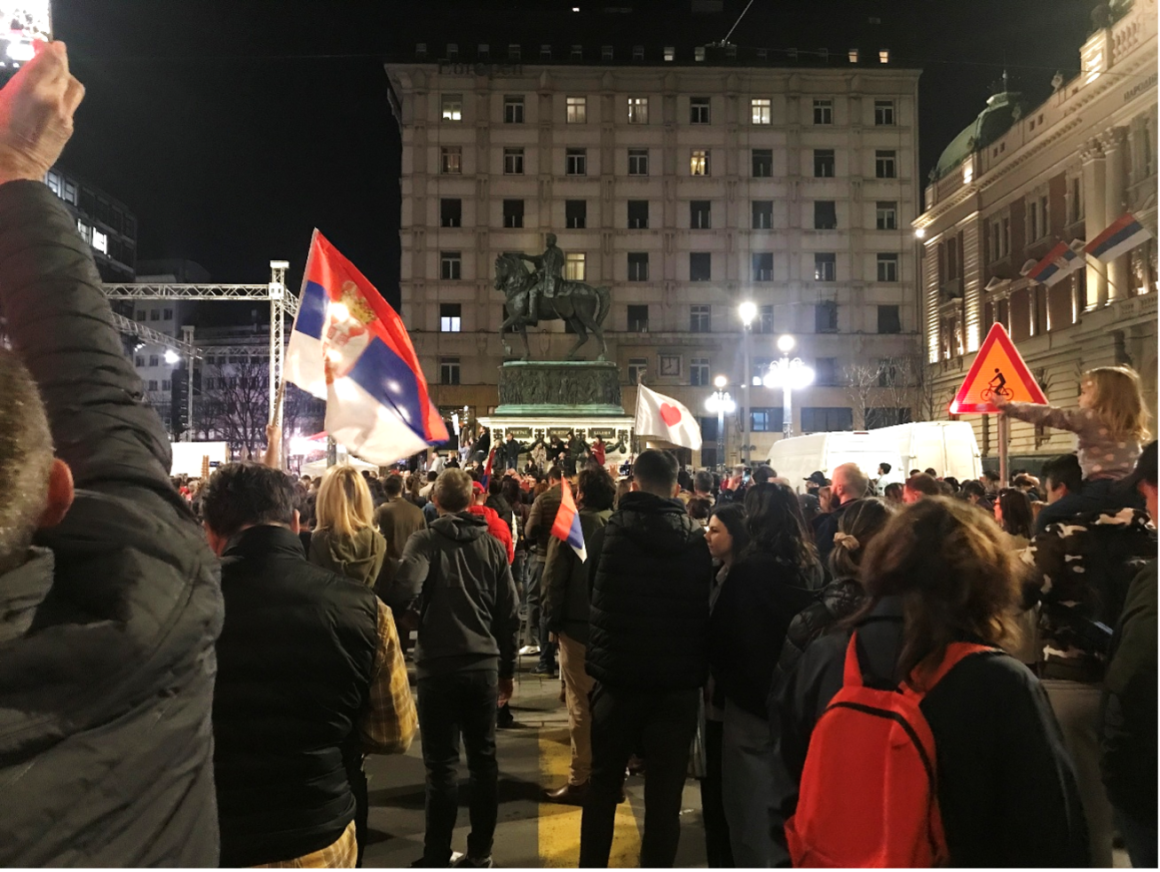All roads lead to Strasbourg
On 3 April 2025, fifty university students from Novi Sad in Serbia will set off for Strasbourg on bicycles. Having woken up even the smallest places in Serbia, they are set to wake up European human rights organisations; not because they’ve lost faith in Europe, but precisely because they still believe in it.
Serbian students have been pilgrimaging throughout their country, seeking justice, accountability, rule of law and equality for all. They have rebuilt long destroyed bridges between Christians and Muslims, between Serbs and Bosniaks, Slovaks, Romanians, Roma and all the other ethnic groups in Serbia, and built new ones with the youngsters and other well-meaning people of the former Yugoslavia region, unburdened by the legacy of the break-up wars of the ‘90’s.
Moreover, these youngsters have inspired the young Turks, with their system of self-governance that uses “plenaries” for collective decision-making, eschewing political hierarchies and parties. They are bound to inspire many more with their spirit and with their simple, yet deeply-reaching demands.
On 1 March, Serbian students gathered in the city of Niš and proclaimed the Student Edict. The Edict has eight provisions that speak about freedom, the state, justice, youth, dignity, knowledge, solidarity, and the future. It mirrors the Edict of Milan of AD 313, agreeing to treat Christians benevolently within the Roman Empire, proclaimed by Emperor Constantine the Great, who had been born in that same city, then Naissus, later renamed Niš, in today’s Serbia.
“This action is a result of the indignation caused by the breach of a large number of human rights, and rights guaranteed by the Constitution of the Republic of Serbia, with no reaction from responsible institutions. Following the lack of reaction, we have decided to refer to foreign/world institutions who have the power to respond and a certain influence on the territory of the Republic of Serbia” – to quote the statement issued by the students aimed at reaching Strasbourg.
The group will be made of 50-80 cycling students, depending on donations received by their departure date, who are to pass through Budapest, Vienna and Munich on their way, supported by other European academic centres that have been notified of the Serbian students’ plan. The action may have a snowball effect if the students from EU-based campuses in transit cities decide to actually join in the action.
Upon arrival to Strasbourg on 17 April, Serbian students are supposed to address the Parliamentary Assembly of the Council of Europe, the Commissioner for Human Rights, the Directorate for Democracy and Human Dignity and the Council of Ministers of the Council of Europe.
Members of the European Parliament have vowed to welcome them on arrival, and enable them to address the EP, the European Commission and the EU Fundamental Rights Agency.
Everyone is wondering what is “next” after the student protests in Serbia, what next after an LRAD sonic weapon or something of that sort was used on the hundreds of thousands of people in Belgrade paying a 15-minute silence for the victims of the railway station collapse in Novi Sad on 1 November. The “next” comes after the international community realises that the student-led demands for a return to constitutionality, separation of powers, and public political accountability, align with the country’s ostensible stated European vocation. The government made no progress on closing chapters of the Acquis Communautaire since December 2021. A new approach is needed, responsive to citizens’ expectations and international obligations.
The ruling coalition in Serbia no longer seems to represent the majority of the people of Serbia, over 80% of whom now support the student-led protest.
This is the new face of Serbia. Their key message is “we want to be able to live in freedom in our own country, in accordance with fundamental values”, support us because Nous sommes la Serbie, nous sommes l’Europe.


